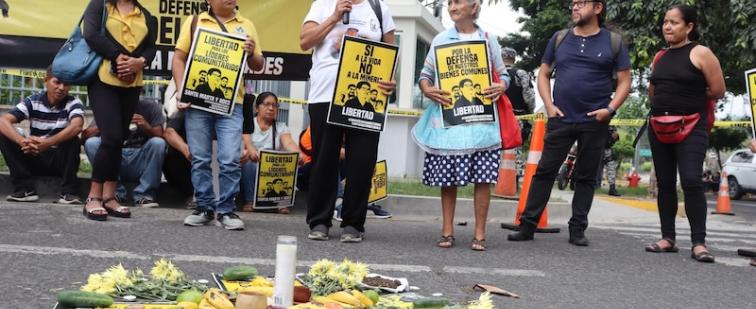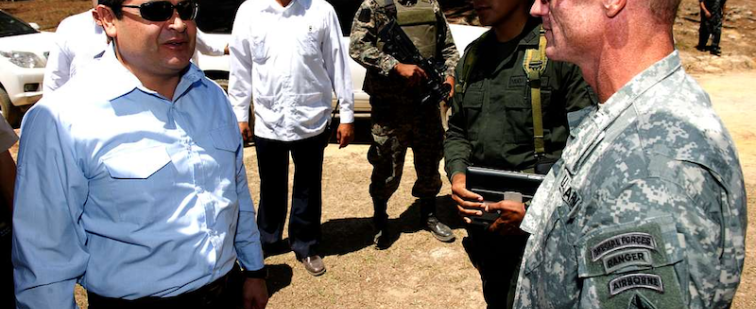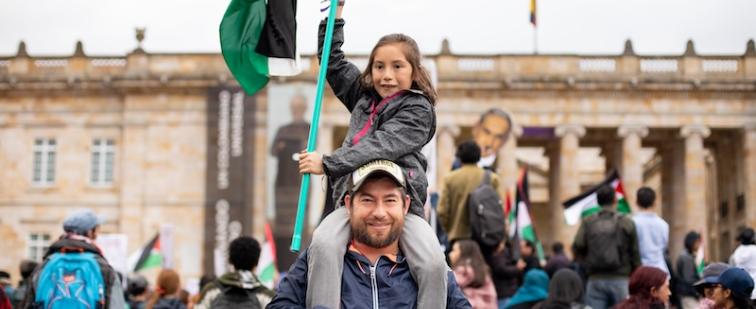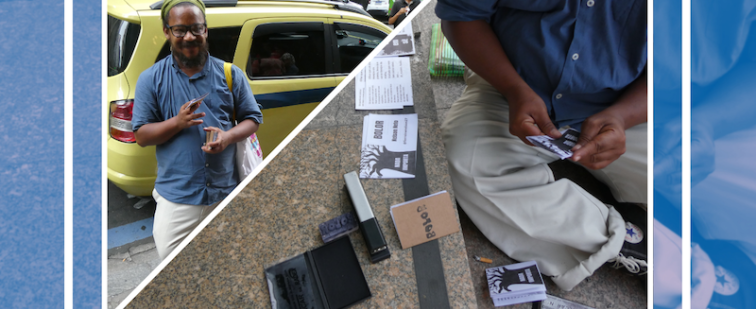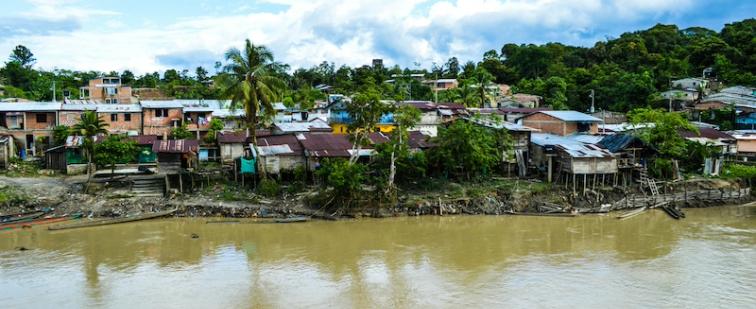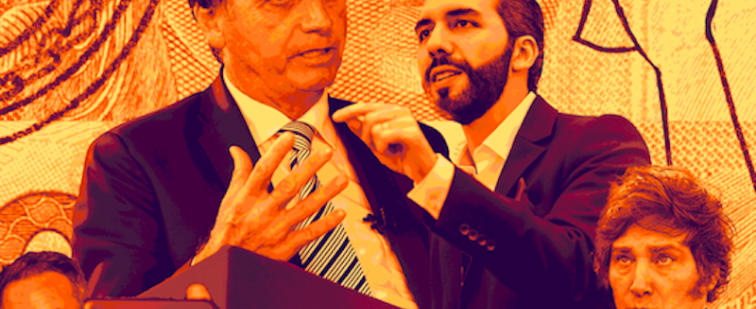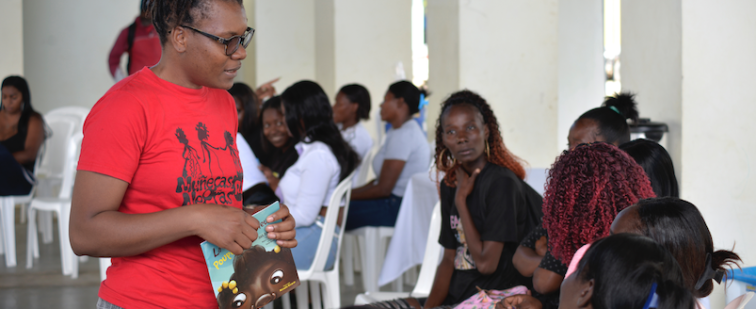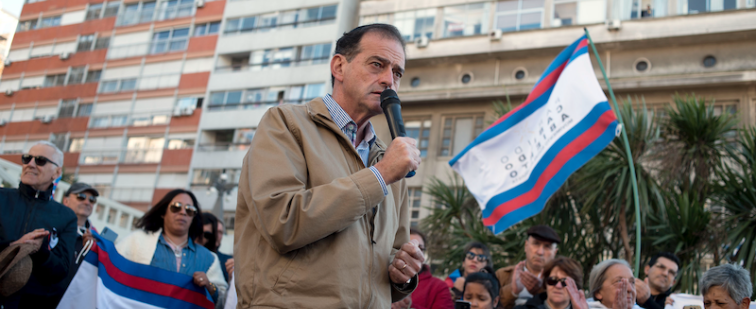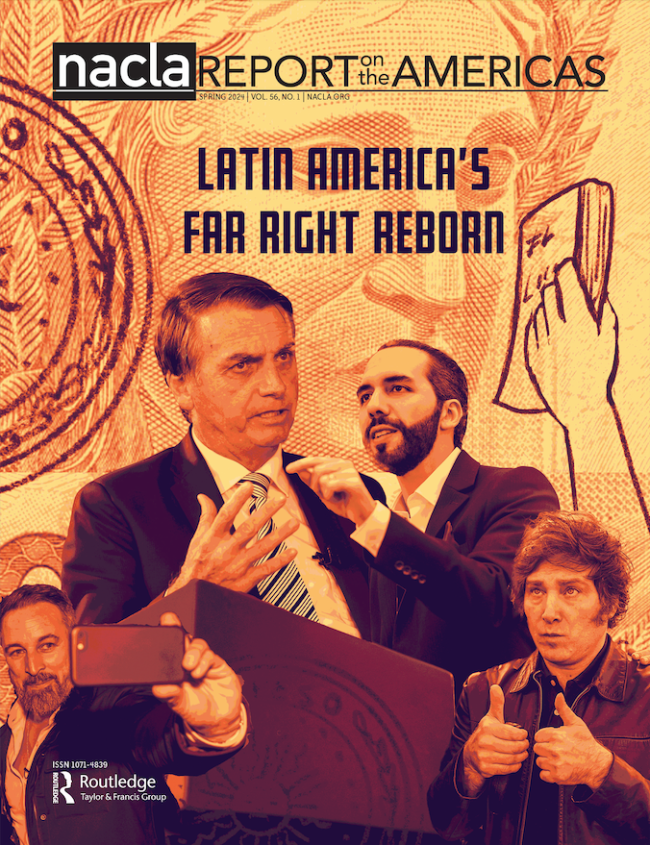Home
Marco Enriquez Ominami railed against Chile's ruling center-left coalition, the Concertación, for being "dinosaurs" who were "out of touch" with the public. Although he captured only 20% of the vote in the first round of Chile's presidential elections, it was still a remarkable feat for a 36-year-old senator running as a progressive independent in a country where for the past 20 years without fail, about 60% of the vote has gone to the Concertación and 40% has gone to the right. For now, polls show that conservative billionaire Sebastian Piñera (who won 44% of the vote in the first round) will most likely win Chile's second round of presidential elections on January 17.
Thousands of MAS (Movement Towards Socialism) supporters filled the Plaza Murillo on Sunday, December 6, to catch a glimpse of the re-elected Bolivian president Evo Morales on the balcony of the Presidential Palace. Amidst the fireworks, clenched fists, celebrations and MAS flags read a banner, "Now it is time to nationalize the private media." Nationalization and Evo Morales go hand in hand, as the MAS leader has returned control of the nation's resources to the Bolivian state since taking power in 2006. But the banner did not represent an ideological position as much it reflected the anger generated by the opposition the extremely popular Morales continues to face from the country's privately owned media.
On June 20, 2009, soldiers set up a military checkpoint in Huamuxtitlan, a small town in the La Montaña region of the state of Guerrero, one of Mexico's many drug-war hot spots. They called a northbound passenger bus to a halt, searched it for drugs and weapons, and detained a passenger named Fausto Valera because he was wearing military-style boots. Perhaps suspecting that he was an insurgent, the soldiers demanded to know where he got the boots. When his answers failed to satisfy them, they placed him under arrest. The incredulous bus driver asked the soldiers to note in his log book that Valera was in their custody. After some complaining, they reluctantly did so.
Who is Rody Alvarado Peña? For much of the 1980s and early 1990s, she was one of Guatemala's thousands of battered women, suffering daily violent abuse at the hands of her husband. Since escaping to the United States in 1995, she has become a symbol of America's ambivalent treatment of female asylum seekers. Three presidential administrations and countless judges deliberated, appealed and ultimately deferred decisions on her case, but a recommendation issued in October may finally make Ms. Peña a legal U.S. resident.
Dole Food Company and Chiquita Brands International paid a Colombian terrorist organization to perform protection services that included murdering trade unionists, demobilized paramilitary José Gregorio Mongones said in an affidavit released December 6. The testimony is the centerpiece of two civil lawsuits against Chiquita and Dole filed by family members of victims of paramilitary violence in Colombia. Both lawsuits accuse the companies of funding the Autodefensas Unidas de Colombia (Colombian United Self-Defense Units, or AUC), the country's largest paramilitary organization, formally demobilized in 2006.
Any objective assessment of Daniel Ortega's government in Nicaragua must take into account the programs it has put in place that are improving the lives of the poor. The Nicaragua Network recently sponsored a ten-person delegation to the country led by my colleague Chuck Kaufman and me. Within the country we were confronted with claims about Ortega's anti-poverty programs that strongly contradicted one another. We heard severe criticisms of the programs from some but found that in practice the criticized programs were making a difference, albeit with problems recognized by the people involved in implementing them.
In early 2007, around the same time that Colombia’s government awarded thousands of dollars worth of agricultural subsidies to a pair of convicted drug lords, farmers in Boyaca province anxiously awaited their own emergency aid. For Feliciano Zapata, a surprise February frost meant he could harvest nothing from his acres of beans, potatoes and peas. Taking no chances, Zapata hired a camera crew to film the brown and withered crops, keeping the video as evidence of his losses when he and more than 2,200 other affected farmers applied for emergency government support. Four months later, Zapata received about $54. “Even the camera crew cost more than that,” he observed. His wife, who’d also applied for assistance as she’d lost about two acres of her own land, received about $1.50, not enough to cover transportation costs back to the farm.
Bolivian president Evo Morales and his political party, the Movement Towards Socialism (MAS), won a resounding victory in the presidential elections this past Sunday, December 6. The nearest challengers, Manfred Reyes Villa and his running mate Leopoldo Fernández — whose current address is a La Paz prison, where he stands accused of ordering the murder of pro-government peasants — represent an old political and economic order that has used sedition and violence in an effort to obstruct and destabilize the Morales government.
In a region where leaders' efforts to reform their nations' constitutions dominate the headlines, one political regime is flying under the radar in its efforts to radically overhaul its foundational political charter. On November 16, an assembly in the Dominican Republic overwhelmingly approved the final draft of sweeping reforms for what may become the most reactionary constitution in the Americas. The constitutional reforms are expected to be officially signed into law by President Leonel Fernández in a ceremony in early December.
On April 20, 2007, the communities of Ixcán, the northern region of Guatemala's department of El Quiché, voted overwhelmingly to reject the construction of a hydroelectric dam known as Xalalá. The result was hardly a surprise, given that at least 17 Ixcán communities, will be inundated because of the dam, according to El Observador, a bimonthly journal based in Guatemala City. Although the results of the consultation were sent to the Guatemalan government, it has yet to respond. But, the protests had an impact. In 2008, financiers withdrew support for the project and the national government is still working to renegotiate funding.

